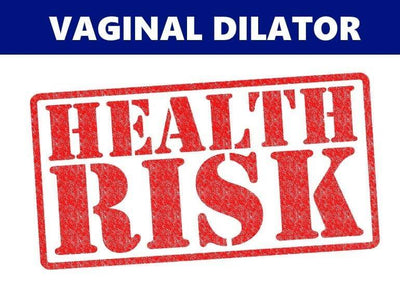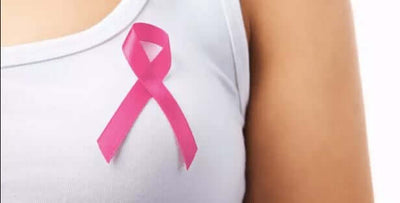
| Caroline Knight
Symptoms of Vulvodynia and Treatment Options
The symptoms of vulvodynia can cause havoc in a woman's life. Yet although there is no known cause, there are various treatment options available to you...
Vulvodynia is a very unpleasant condition characterized by chronic vulvar pain; the pain typically affects the labia, clitoris, and vaginal opening.
One of the most frustrating things about vulvodynia is that the cause is unknown. Doctors speculate that nerve things like injury, infection, trauma, allergies, antibiotics or sexual abuse may cause it. However no conclusion has been reached as yet.
As there is no definitive cause, there is no known cure. So the best course of action is to treat the symptoms of vulvodynia. This in itself can be a case of trial and error; while a treatment may work for one woman, it may not for another.
The symptoms of vulvodynia
The most common vulvodynia symptom is a burning pain that many women describe as ‘knife-like’ or as if acid had touched the skin. In some instances, the vulva can appear swollen or inflamed. These are typical vulvodynia symptoms:
- Burning pains
- Stinging pains
- Aching pains
- A feeling of rawness
- Throbbing or itching
- General soreness
Vulvodynia can come on suddenly and continue for many months. Sometimes it is present for years. There are actually two types of vulvodynia, as follows:
Generalized vulvodynia
Generalized vulvodynia refers to fluctuating pain in various areas of the vulva. It does not consistently affect one area, and the pain may be intermittent. For some women touch triggers it, whereas for others it does not. Once present, pressure may exacerbate the pain.
Localized vulvodynia
Localized vulvodynia refers to pain in one particular part of the vulva. It usually consists of burning or stinging sensations, and is often triggered by pressure. Sexual intercourse can set it off, as can remaining seated for extended periods.
Treating the symptoms of vulvodynia
One way or another, treatment for vulvodynia will probably be necessary, as it affects all kinds of activities from sexual intercourse to sports. Using tampons can also be problematic, and understandably, vulvodynia often causes psychological issues. However, there are many options for treating the symptoms of vulvodynia. You should try out several to see which remedies work best for you.
Things to avoid
- Contact with possible irritants, like soaps, shampoo, douches or medications
- Contact with any chemicals or perfumes, e.g. detergent, fabric softener or scented toilet roll
- Nylon or non-breathable underwear, always opting for cotton
- Chlorinated pools
- Inflammatory foods
- Tight fitting clothing
- Prolonged periods of sitting
- Bike riding and horse riding
Things that help
- Use sanitary pads or trying soft Mediterranean sea sponges instead of tampons
- Keep the vulva clean, especially after intercourse or urination
- Try using chemical-free, plant-based oils to moisturize and protect the vulva
- Use water-soluble lubricants during intercourse and cool gel packs afterwards
- Using vaginal dilators can help a lot
- Take lukewarm or cool sitz baths
- Join a support group to share with other sufferers
When more serious treatments are necessary:
- Try pelvic floor physical therapy
- Take medicines advised by your doctor, but be careful: some are known to worsen it. Really only use medication as a last resort, side effects can be awful.
- Surgical options exist, but success rates are not that high. Please use surgery as a LAST resort and visit a vulvar specialist, do not have your normal doctor perform your surgery.
If you are dealing with vulvodynia, you might find this video on moving beyond vulvodynia helpful. Vulvodynia affects women of all ages and ethnicities, from the teenage years onward. The estimated number of suffers is high: perhaps up to six million! Other women share your pain, as you will discover in this personal story on how vulvodynia affects your sex life.
One way or another, with persistence, you will find a solution for your symptoms of vulvodynia. The entire VuvaGirl site is dedicated to helping women with these kinds of problems, so take a look around and see what you can learn.
Dilator therapy helps improve pelvic health and female sexuality. They are used to help a wide variety of female health concerns. Speak to your doctor today about how dilator therapy can help you.
Do you need to order vaginal dilators so you can start your pelvic floor therapy process? Made in the USA. Visit www.vuvatech.com
VuVa Dilator Company Helpful Links:
How do Neodymium Vaginal Dilators work?
7 Reasons for a Tight Vagina and How to Loosen
How to Relax Vaginal Muscles, Vaginismus & Sex
Vaginal Stretching - Keeping in Shape with Dilators
Do Dilators Really Work? Yes, and They can Improve Your Sex Life!
Shop for VuVa Vaginal Dilators
Tara Langdale Schmidt is the inventor of the VuVa Dilator Company. She has pelvic floor dysfunction herself and wanted to create a dilator set that is made in America that women can trust. VuVatech has been in business since 2014 and has helped over 50,000 women all over the globe. She patented the Neodymium Vaginal Dilator, that is clinically proven to help with blood flow and nerve pain.














